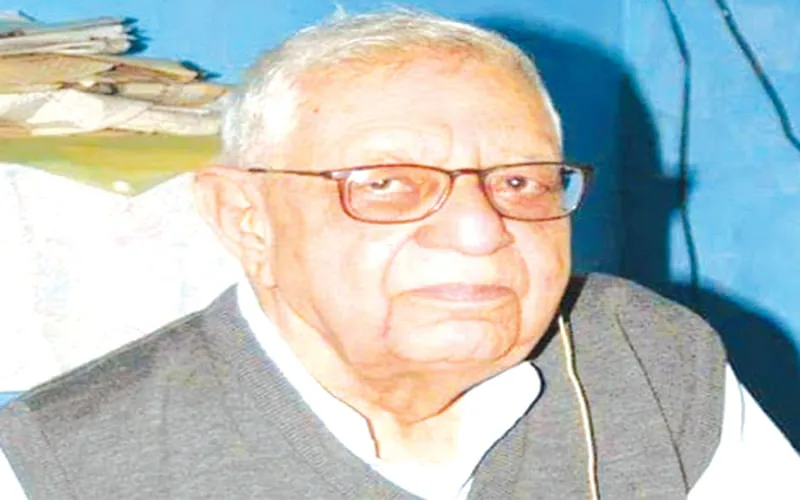Legends also die. This was reconfirmed on January 28 morning, when Krishan Dev Sethi breathed his last, leaving his friends and admirers to mourn the loss; the firmament of Jammu and Kashmir was less by a radiant being.
Most of the commentators recalled that he was the “last surviving member of the Constituent Assembly of J&K” that gave the State its constitution, which was in existence until August 5, 2019.
The men who framed the constitution are legends in themselves. All those who have read the debates that took place in the Constituent Assembly are aware that the quality and decency of the debates; it was of a far higher quality that we can imagine today. The constitution of the Constituent Assembly, and framing of separate constitution for the state of Jammu and Kashmir was an obligation of history in those critical times, without which the history of the state would have been written differently. This needs political understanding and penetrating insight of the unfolding events, which people like Sethi had.
Sethi Sahab – he was addressed like that out of respect for him – was a familiar face in Kashmir Times, the newspaper founded by Ved Bhasin, another legend who introduced professional journalism in Jammu and Kashmir.
Sethi Sahab was perhaps the first reader of the print edition of the newspaper every morning. “Flail Singh Sahab aaj da paper ( Kashmir Times) deyo”( Flail Singh, please give me today’s newspaper).
Who was Flail Singh? He was an office boy. The papers were brought to the office by Purshotam, driver of Ved ji’s first ambassador car that served multiple purposes.
The point I am trying to make is that Sethi Sahab would always use suffix of “Sahab” with everyone’s name. This was his way of connecting with the people. I never asked him why he addressed the people with such dignified expressions, but that, I realise now was his way of treating one and all with respect.
To my mind, he was a political scientist par excellence . He could feel the inner sense of the prevailing environment and draw the future nuances. That was his way of telling the history in making – mostly, it was oral.
He could quote speeches of the world leaders and interpret in reference to the contemporary times. .
In late 1980s, armed militancy had erupted in Kashmir, and all the police hunt for the militant leaders had ended in zero. Sethi Sahab made an observation that was a great lesson in itself. This is a failure of system. It is not the gun that is powerful, it is the failure of the system that is hurting the atmosphere and people. This will lead to serious consequences.
His were the prophetic words. He could foresee where the things were headed. His knowledge of political science was not academic, it was practical. His newspaper, Jadho jahad, an Urdu Weekly, was true to its name. It was reflective of the pain of the workers, peasants, and it preached the philosophy of social justice.
The questions Sethi used to address in his weekly newspapers were that on inequality, the challenge facing the working class, peasants and the urban middle class. These were very important questions when politics of the country, and in particular Jammu and Kashmir, was undergoing unexpected convulsions caused by undemocratic ways of dismissing the elected governments and then reinstatement on the basis of compromises. He was impatient for political stability and was a strong votary of a formidable opposition.
This is what I could gather, when he would interact with Ved Pal Deep, Dogri poet of eminence and one of the most imaginative writers Jammu and Kashmir ever produced. Deep Sahab would discuss the editorials of the newspaper with him. Their discussions were a lesson in Marxism, Capitalism and liberalism that had started taking shape across the West. He watched very closely the developments in Pakistan and Afghanistan.
The Day – November 7, 1986, – when (unwritten) Rajv Farooq accord was announced, which was all but an accord for power sharing between National Conference and Congress, Sethi had predicted that the state’s politics would descend into religious fundamentalism and polarisation. He knew what was coming.
These were not oracles rooted in fiction but that of a political scientist who could see the direction or misdirection of winds of politics.






